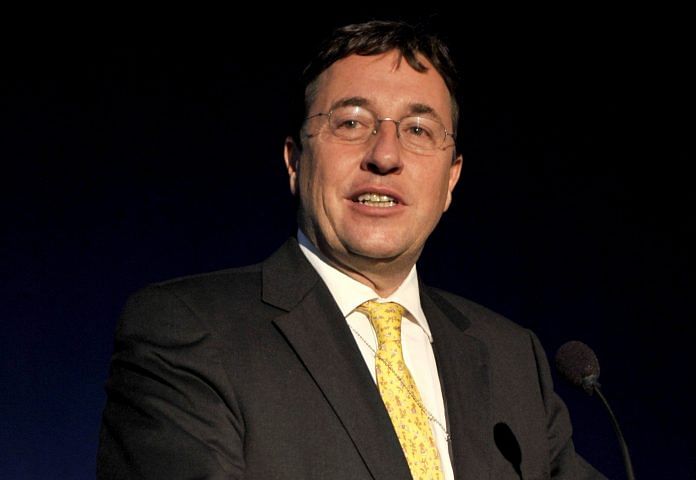Achim Steiner says several countries have been able to stymie air pollution, and suggests that India should go for the source of the problem, not the tail-end.
Over the past few weeks, northern India, including Delhi and the National Capital Region, have been enveloped in a thick blanket of smog, which brought air quality down to hazardous levels several times. While the media and citizens of this region agitated, the central and state governments kept passing the buck, and no tangible and long-term solutions were adopted.
However, Achim Steiner, Administrator of the United Nations Development Programme (UNDP), believes that only sustained pressure from the public can make governments act.
“Politics follows the contour of the streets. When people are no longer willing to accept this (pollution), governments are willing to act,” Steiner said in conversation with Shekhar Gupta, Editor-in-Chief of ThePrint, on NDTV’s Walk the Talk.
Although air pollution is a “fatalism of modern development” that almost every country in the world has to grapple with, several countries have been able to stymie the adverse impact on the environment through regulation, the adoption of modern renewable energy technologies, and sheer resolve, Steiner said.
He gave the example of how the big debate about diesel—which has been criticised for being extremely polluting to the environment—was being tackled by Germany, a hub of modern automobile manufacturing and industry.
“Just in the last two years, the discussion has moved towards producing the last of the combustion engines somewhere around 2030,” he said.
Steiner suggested that India should go for the source of the pollution problem, rather than merely working on the tail end. He added the country should set clear targets, without which, there would be no accountability.
On the issue of crop stubble burning, he reiterated that incentives would work better than simply banning the act.
Speaking about the divisive Paris Climate Agreement, the UNDP chief said he viewed it as the “single largest driver of a structural economic transition”.
He addressed US President Donald Trump’s decision to back out of the agreement, saying: “America eventually will not be able to afford not to be a part of this transition.”
On the topic of ratings, while discussing the certificate given by the United Nations Environment Programme to the Indian city of Alappuzha for its waste management technique, Steiner, who used to lead the UNEP, said they “looked for people or institutions that went against the grain of what is accepted wisdom”.
He also spoke about the importance of ratings like the UN Human Development Index, which he called a “big contribution”, as it challenged prevailing notions of how progress and development were measured.
“The attention that the ratings get are proof that they are worth having,” he said.
Steiner asked the world to give a little bit of credit to the United Nations for being a platform where nations with divergent interests could come together in the end.



